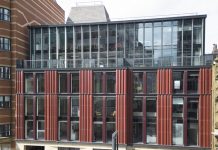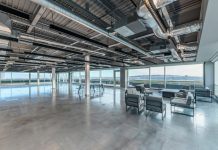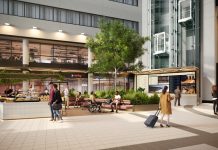The North West’s retail sector is failing to pick-up in the face of increased online spending as demand for industrial property in the region is holding strong, according to the quarterly RICS Commercial property Market Survey Q2, 2019.
Over 45% of commercial property agents in the North West reported a fall in demand for retail property in the region during the second quarter of the year (Q2 2019), whilst 22% saw an increase in occupier demand for industrial space. 14%% of contributors to the survey also saw a rise in demand for offices in the North West (up from 13% in Q1 2019).
Looking at availability of commercial property in the North West; the lack of interest in retail space in the region had a knock-on effect on availability during Q2, 2019, with 38% of commercial property agents reporting an increase in vacant retail outlets, ready to be let or bought in the region.
Meanwhile, rising demand for industrial property in the North West resulted in more agents reporting a fall in availability of such space during the second quarter of the year. On a more positive note, 13% of contributors saw an increase in availability of offices during Q2, 2019 (up from 6% in Q1, 2019).
As for rental expectations, 43% of respondents expect to see rents for retail property in the region fall over the coming three months, whilst 22% anticipate rents for industrial space rising over the same period, and a moderate 14% expect to see office rents rise across the coming three months.
Regarding the next twelve months, prime and secondary retail rents are expected to fall by around 2.9% and 6% respectively, whilst prime and secondary industrial rents are expected to rise by 3.2% and 1.6%. For prime offices, approximately 3.1% rental growth is expected, while rents for secondary offices are anticipated to grow by 1.1%.
In terms of investor demand; enquiries from overseas investors for offices rose during Q2, 2019, but demand from foreign investors for retail space fell during the second quarter of the year, as enquiries for industrial space were flat.
Over the next twelve months, further solid growth in capital values is expected across the prime industrial and office sectors, but retail capital value projections remain deeply negative.
Looking across the market, 47% of respondents feel the North West market is in some stage of a downturn.
Charles Fifield of Fifield Glyn Limited in Cheshire commented: “There are two principle factors affecting the region’s property market at present. Firstly, uncertainty over Brexit means longer term investment or occupational requirements are being put on hold; this is reliant on Westminster to solve. Secondly, the long-term decline of the traditional high street due to internet shopping and retail parks continues to affect retailers and investors, although more affluent areas are proving more resilient due to leisure use becoming more important.”
Warren Lomas of the Valuation Office Agency in Blackpool added: “In the North West region, specifically Blackpool, the main issue is with the retail market. Given the seasonal nature of Blackpool, with higher visitor / tourist numbers in the summer months, one would expect retail occupation to be improving even if only short term “seasonal” lettings, but this is not the case with the main retail parts of the town having large number of vacant units. Prezzo and other restaurant chains specifically are relocating out of the town.”
Commenting on the overall survey findings, Tarrant Parsons, RICS Economist, said: “The overall picture remains little changed across the UK Commercial Property Market in Q2, with the disparity between a strong backdrop for the industrial sector and weakness in retail still very evident. While expectations continue to point to solid rental and capital value growth in the former, further declines are expected in the latter. Brexit uncertainty also remains a notable headwind, causing caution across both occupiers and investors while they await clarity on the UK’s future trading relationship with the EU.”





















